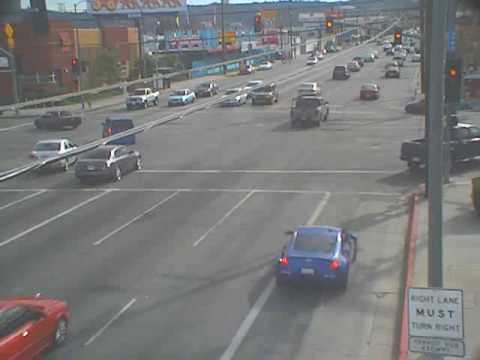#RedLightCamera
Virginia Governor Kicks Off Massive Photo Enforcement Expansion
Virginia Governor Bob McDonnell (R) signed into law last week a proposal that would create an entirely new form of automated ticketing machine, an “airport business” camera. The move followed his approval last month of legislation designed specifically to revive his state’s moribund red light camera program.
California: City Fined $250,000 Over Botched Red Light Camera Program
Red light camera program troubles continue to grow in South San Francisco, California. On Wednesday, the city council will meet to discuss how to pay the $250,000 bill submitted by the San Mateo County Superior Court to cover the administrative costs of processing $3 million worth of red light camera citation refunds. Because the city failed to properly ratify its contract with American Traffic Solutions, the company in charge of automated ticketing, the 6800 tickets issued between August 14 2009 and February 28, 2010 were declared invalid by the court.
Los Angeles Profits From Right Turn Trap
An intersection in Los Angeles, California is billing drivers nearly $500 for making a turn in the split-second before a permissive green turn arrow appears. Los Angeles hired American Traffic Solutions to operate thirty-two cameras in order to generate about $4 million a year in revenue. The cameras now pounce on drivers making technical mistakes on right-hand turns.
California: Legislation Would Create Green Light Cameras
Red light cameras in the state of California originally were first used to issue tickets to the owners of vehicles that entered an intersection after the light had turned red. In just the past few years, the cameras have shifted focus and now primarily ticket the owners of vehicles that make rolling right-hand turns on a red light. Assemblyman Tom Ammiano (D-San Francisco) wants to further transform the system by introducing green light cameras. The new system, which initially would only operate at a single intersection in Ammiano’s district, would target people who turn right while the light is green.



















Recent Comments